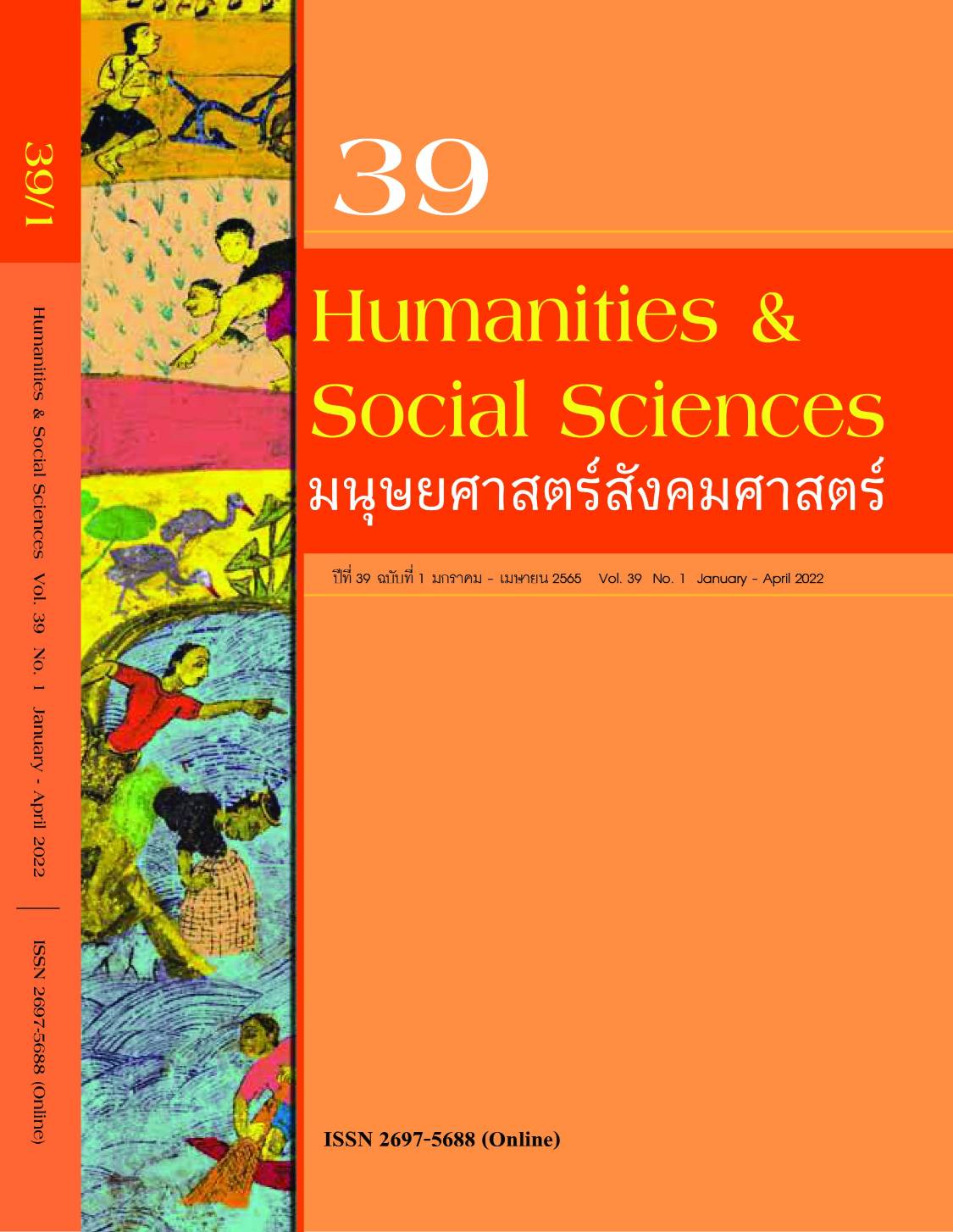ศึกษาการใช้คำวิเศษณ์บอกเวลาพ้องความหมายในภาษาเกาหลีของนักศึกษาไทย กรณีศึกษา : คำวิเศษณ์บอกเวลา “벌써-이미” “지금-이제” “어서-얼른”
A Study of Thai students' Use of Adverbs of Time in Korean Language Case Study: Korean’s Adverb of Time “벌써-이미” “지금-이제” “어서-얼른”
Keywords:
adverb of time, synonym, Korean language, Thai studentAbstract
The purpose of this research was to study how Thai learners use synonymous adverbs in Korean in terms of semantic classification and correct usage according to Korean grammar. The sample group consisted of 217 third-year students majoring in Korean language. The research instrument was a competency test on the use of adverb of time, “이미-벌써” “지금-이제” “어서-얼른”. The statistics used in the data analysis were mean and percentage. The findings revealed that
1) Thai students were not able to correctly classify the meanings and terms of use according to the Korean grammar of synonymous adverbs. This is due to the fact that synonymous adverbs in Korean have their own set of semantics and grammatical words. As a result, when adverbs of time are synonymous, they convey the same meaning and can be interchanged. They are frequently perceived to have distinct meanings and are not interchangeable. The results were as follows:
1.1) the adverb “벌써” and adverb “이미” signified “past tense” these words are identical and interchangeable. But Thai students gave wrong answers with the percentage of 81.79.
1.2) the adverb “지금” and adverb “이제” implied “present simple tense” these words are similar and interchangeable. But then Thai students gave wrong answers with the percentage of 73.87.
1.3) the adverb “어서” and adverb “어른” meant “The desire to do something smoothly and continuously in the future” these words are comparable and substitutable. On the other hand, Thai students gave wrong answers with the percentage of 82.2
- Thai students have a limited understanding of Korean grammatical terms related to inflectional language. The appearance of synonymous adverbs with different words and grammar, as well as their syntactic endings, can lead to confusion when selecting synonymous adverbs to match their meaning.
References
김광해. (1987). 유의어반의어 사전. 한샘.
_________. (1989). 현대 국어의 유의 현상에 대한 연구– 고유어 대 한자어의 일대다대응 현상을 중심으로-.서울대학교 대학원 박사.
김태우. (1992). 현대국어시간부사의 나말맡연구. 부산외국어대학교 석사학위논문.
만리. (2010). 한국어 교재의 시간부사 분석 –유의어 시간부사를 중심으로-. 상명대학교 석사학위논문.
민현식. (1990). 국어의 시상과 시간부사 -시제, 상, 서법의 3원적 해석론-. [국어교육], 69, 15-42.
봉원덕. (2004). 국어 시간 부사의 통사-의미적 특징 연구. 경희대학교 석사학위논문.
서강대학교 한국어교육원. (2010). 서강한국어 문법단어 참고서.도서출판 하우.
손남익. (1995). 국어부사연구. 박이정.
온영두. (1986). 현대 국어 부사의 통사 의미 연구. 전북대학교 석사학위논문.
연세대학교 한국어 어학당. (2013). 연세 한국어1-1. 연세대학교 대학출판문화원.
연세대학교 한국어 어학당. (2013). 연세 한국어 2-2. 연세대학교 대학출판문화원.
양송. (2019). 한국어 시간 부사 유의어 변별 연구. 연세대학교 석사학위논문.
왕단. (2015). 중국인 학습자를 위한 시간 부사 유의어 교육 방안. 전남대학교 석사학위논문.
조현용. (2000). 한국어 어휘 교육 연구. 박이정 출판부.
진희릉. (2015). 중국인 학습자를 위한 시간 부사 유의어 교육 연구. 서울대학교 석사학위논문.
한국외국어대학교 태국어과. (2006). 한국어-태국어 사전. 한국외국어대학교 출판부.
황유연. (2020). 한국어 시간 부사 유의어 “얼른, 어서, 빨리” 에 관한 연구 – 중국인 학습자를
대상으로-. 건국대학교 석사학위논문.
최경아. (2007). 한국어 유의어 교육 방안 연구 -시간 부사를 중심으로-. 고려대학교 석사학위논문.
최현배. (1961). 우리말본. 정음사.
풍심엽. (2018). 중국인 학습자를 위한 한국어 시간 부사 유의어 교육 방안 연구. 한 양 대 학 교 석사학위논문.
Iadnuy Kanchana. (2013). 태국인 학습자를 위한 정도 부사 유의어 교육 방안 연구. 숙명여자대학교 석사학위 논문.
Wilkins, D. A. (1972). Linguistics in Language Teaching. Cambridge: MFT Press.
เว็บไซต์
สำนักงานราชบัณฑิตยสภา. (2554). พจนานุกรม ฉบับราชบัณฑิตยสถาน. สืบค้นเมื่อ 10 กุมภาพันธ์ 2564.
จาก, https://dictionary.orst.go.th/index.php
국립국어권. 표준국어대사전. สืบค้นเมื่อ 10 กุมภาพันธ์ 2564. จาก,
https://stdict.korean.go.kr/main/main.do
Naver. 어학사전. สืบค้นเมื่อ 10 กุมภาพันธ์ 2564. จาก, https://dict.naver.com/



